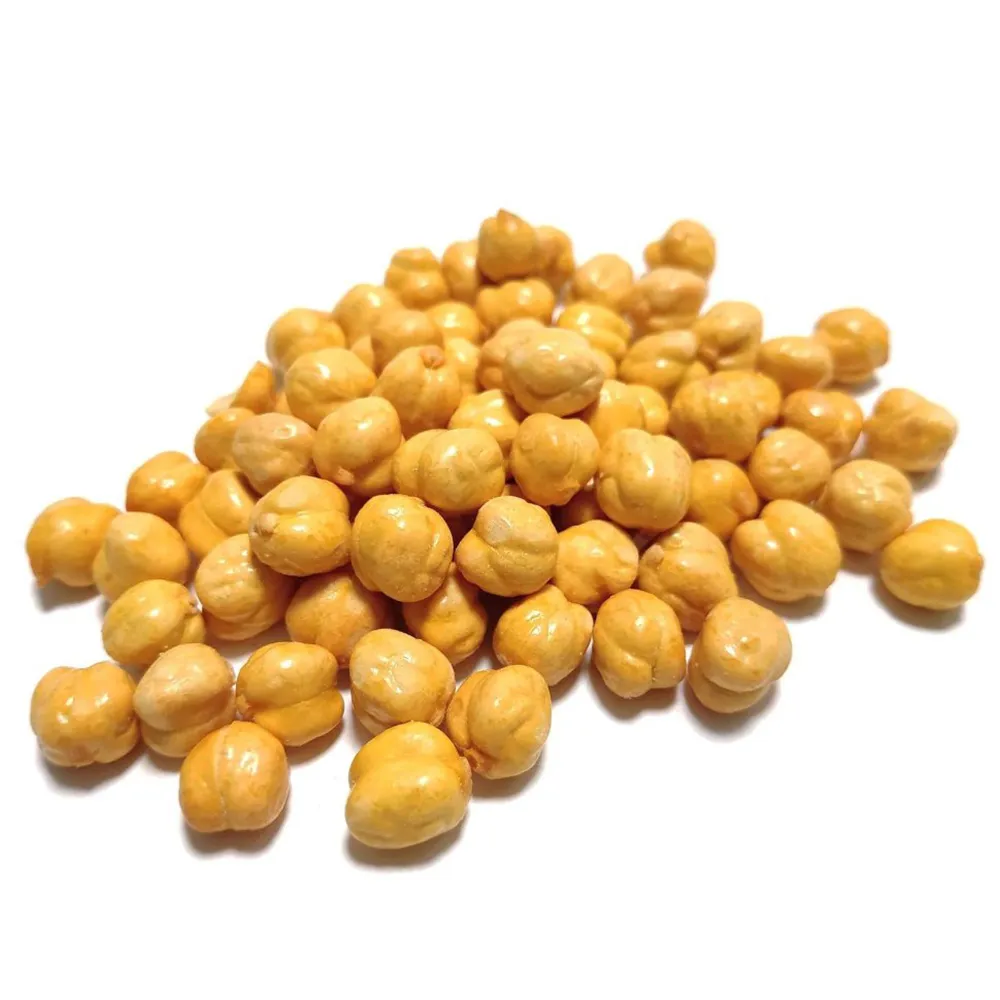
| Glycemic Index | Glycemic Load |
10
|
6.1
|
The glycemic index (GI) of chickpeas equals to 10, which classifies it as a low GI food. The glycemic load (GL) of chickpeas is equal to 6.1, which classifies it as a low GL food.
| Nutrition Facts | |
| Calories (kcal) | 364 |
| Carbohydrates (g) | 61 |
| Proteins (g) | 19 |
| Fats (g) | 6 |
100 grams of chickpeas contain 364 kcal (1523 kJ), 19.0 grams of proteins, 61.0 grams of carbohydrates, and 6.0 grams of fats.
Chickpeas, also known as garbanzo beans, are a type of legume that are popular in Middle Eastern and Mediterranean cuisine. They are rich in nutrients and have many health benefits. In this article, we will discuss the nutritional benefits, drawbacks, nutrition facts, and health benefits of chickpeas.
Nutrition Facts:
Chickpeas are a good source of protein, fiber, and other essential nutrients. One cup of cooked chickpeas, which is approximately 100 grams, contains approximately 364 calories, 19 grams of protein, 6 grams of fat, and 61 grams of carbohydrates.
Health Benefits:
- Supports Digestive Health: Chickpeas are high in fiber, which can help to promote healthy digestion and prevent constipation.
- Helps Control Blood Sugar: Chickpeas have a low glycemic index, which means they are digested slowly and do not cause a rapid spike in blood sugar levels. This makes them a good choice for individuals with diabetes or those at risk for developing diabetes.
- Promotes Heart Health: Chickpeas contain several nutrients, such as folate and magnesium, which can help to lower blood pressure and reduce the risk of heart disease.
- Supports Weight Loss: The high fiber content of chickpeas can help to promote feelings of fullness and reduce appetite, making them a good choice for weight loss.
- Provides Essential Nutrients: Chickpeas are a good source of several essential nutrients, including iron, manganese, and vitamin B6.
Drawbacks:
- Can Cause Gas: Chickpeas are high in fiber and complex carbohydrates, which can cause gas and bloating in some individuals.
- May Contain Antinutrients: Chickpeas contain antinutrients, such as phytic acid and trypsin inhibitors, which can interfere with the absorption of some nutrients. Soaking, sprouting or cooking chickpeas can reduce the levels of antinutrients.
- May Cause Allergic Reactions: Some individuals may have an allergic reaction to chickpeas, particularly those with a history of legume allergies.
- High in Calories: While chickpeas are a nutrient-dense food, they are also high in calories. Consuming too many calories can lead to weight gain.
In conclusion, chickpeas are a nutrient-rich food that can provide several health benefits, including promoting digestive health, controlling blood sugar levels, and supporting heart health. However, they can also cause gas and allergic reactions in some individuals and are high in calories. Including chickpeas in a balanced and varied diet can provide essential nutrients and promote overall health.


